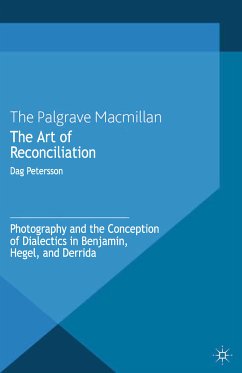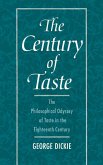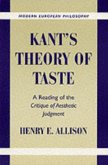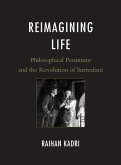In An Introduction to Kant's Aesthetics, Christian Wenzel discusses and demystifies Kant's Critique of the Power of Judgment, guiding the reader each step of the way and placing key points of discussion in the context of Kant's other work.
- Explains difficult concepts in plain language, using numerous examples and a helpful glossary.
- Proceeds in the same order as Kant's text for ease of reference and comprehension.
- Includes an illuminating foreword by Henry E. Allison.
- Offers twenty-six further-reading sections, commenting briefly on books and articles from the English, German, and French, that are relevant for each topic
- Provides an extensive bibliography and a chapter summarizing Kant's main points.
Dieser Download kann aus rechtlichen Gründen nur mit Rechnungsadresse in D ausgeliefert werden.
"As an overall assessment, then, this is undoubtedly one of themost interesting and meticulous "guides" to Kant's aesthetictheory. Even though Wenzel clearly adopts a slightly differentapproach to Kant's aesthetic theory than this reviewer, this bookis probably the best introductory volume currently available."Elisabeth Shellekens, The Journal of Aesthetics and ArtCriticism
"In sum, I highly recommend this book to students and scholarswith some familiarity with Kant and the "Critique ofAesthetic Judgment." This book will surely deepen theirunderstanding of Kant." Kenneth F. Rogerson, Notre DamePhilosophical Reviews
"Wenzel's book is an invaluable aid for all seriousstudents of Kant's third Critique. The reconstruction ofarguments is clear and concise; the annotated bibliography isremarkably knowledgeable and helpful." Karl Ameriks,University of Notre Dame
"This volume will be indispensable to any new reader ofKant's third Critique who seeks illumination of its key concepts,insights into its philosophical context, and guidance for furtherstudy." Eckart Förster, Johns HopkinsUniversity
"In sum, I highly recommend this book to students and scholarswith some familiarity with Kant and the "Critique ofAesthetic Judgment." This book will surely deepen theirunderstanding of Kant." Kenneth F. Rogerson, Notre DamePhilosophical Reviews
"Wenzel's book is an invaluable aid for all seriousstudents of Kant's third Critique. The reconstruction ofarguments is clear and concise; the annotated bibliography isremarkably knowledgeable and helpful." Karl Ameriks,University of Notre Dame
"This volume will be indispensable to any new reader ofKant's third Critique who seeks illumination of its key concepts,insights into its philosophical context, and guidance for furtherstudy." Eckart Förster, Johns HopkinsUniversity









